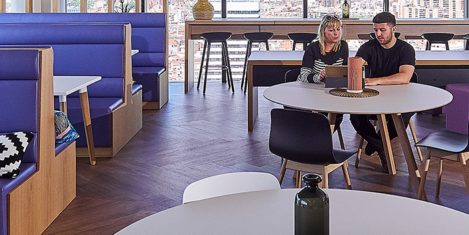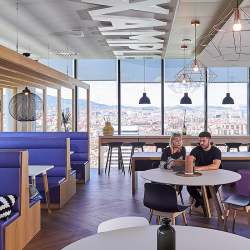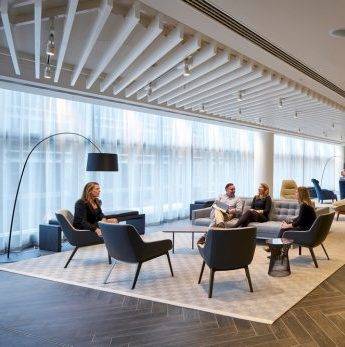July 4, 2018
Why you should definitely stand in meetings (and not care what others think about it)
 People who stand in meetings may enjoy a number of health benefits, but it can also make them feel self-conscious, anxious about how others perceive them, and disengaged from the meeting. These findings, taken from our recent study, suggest that efforts to encourage office workers to sit less and move more must acknowledge the realities of the workplace that conspire to keep people chained to their seats. Sitting has been linked to adverse health outcomes, including increased risk of obesity, heart disease, some cancers, and poorer mental health. While some evidence suggests that the harms of sitting can be offset by at least one daily hour of moderate physical activity, this seems an unrealistic target. (more…)
People who stand in meetings may enjoy a number of health benefits, but it can also make them feel self-conscious, anxious about how others perceive them, and disengaged from the meeting. These findings, taken from our recent study, suggest that efforts to encourage office workers to sit less and move more must acknowledge the realities of the workplace that conspire to keep people chained to their seats. Sitting has been linked to adverse health outcomes, including increased risk of obesity, heart disease, some cancers, and poorer mental health. While some evidence suggests that the harms of sitting can be offset by at least one daily hour of moderate physical activity, this seems an unrealistic target. (more…)







 Built environment organisations are calling for urgent action on issues such as consumption, innovation and infrastructure to prevent the UK slipping behind other nations on poverty, equality and the environment as a new report released today (3 July 2018) highlights the UK’s inadequate performance against the United Nations Sustainable Development Goals (SDGs), including those for the built environment. The report, Measuring up, from the UK Stakeholders for Sustainable Development (UKSSD), is the first comprehensive assessment of the UK’s performance against all 17 SDGs and highlights a significant danger that quality of life in the UK will worsen if action is not taken. Just some of the findings of the report include; that the UK is performing well (green) on only 24 percent of its targets; no industry, innovation and infrastructure targets have achieved a ‘good’ performance rating, with gaps in policy coverage and inadequate or deteriorating performance and large scale, sustained investment in replacing ageing infrastructure and creating additional resilient and low carbon infrastructure of all kinds is required.
Built environment organisations are calling for urgent action on issues such as consumption, innovation and infrastructure to prevent the UK slipping behind other nations on poverty, equality and the environment as a new report released today (3 July 2018) highlights the UK’s inadequate performance against the United Nations Sustainable Development Goals (SDGs), including those for the built environment. The report, Measuring up, from the UK Stakeholders for Sustainable Development (UKSSD), is the first comprehensive assessment of the UK’s performance against all 17 SDGs and highlights a significant danger that quality of life in the UK will worsen if action is not taken. Just some of the findings of the report include; that the UK is performing well (green) on only 24 percent of its targets; no industry, innovation and infrastructure targets have achieved a ‘good’ performance rating, with gaps in policy coverage and inadequate or deteriorating performance and large scale, sustained investment in replacing ageing infrastructure and creating additional resilient and low carbon infrastructure of all kinds is required.
















 A major research study “
A major research study “








June 28, 2018
Ten demonstrable truths about the workplace you may not know
by Kerstin Sailer • Comment, Facilities management, Features, Workplace design
(more…)